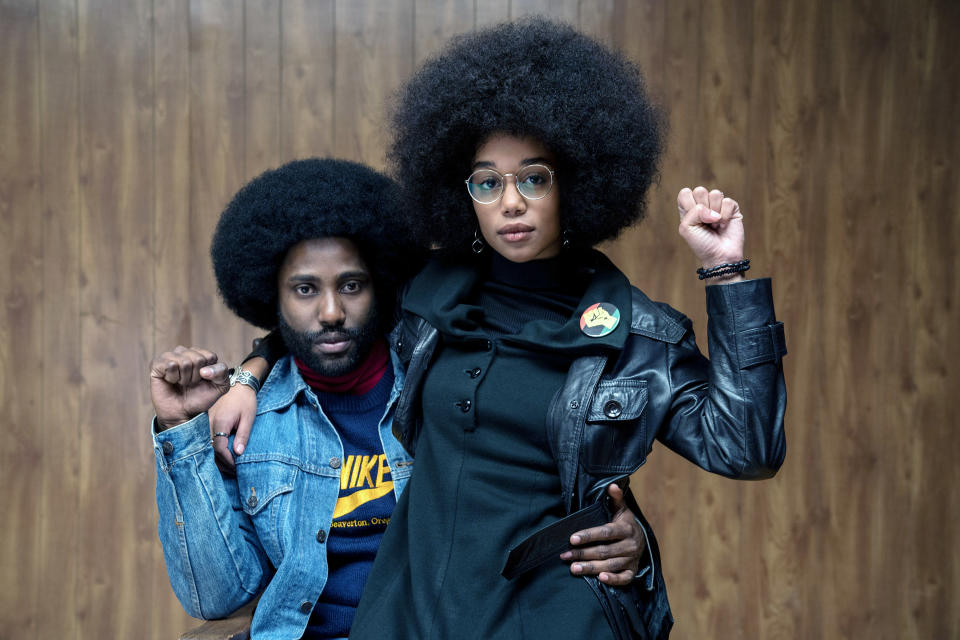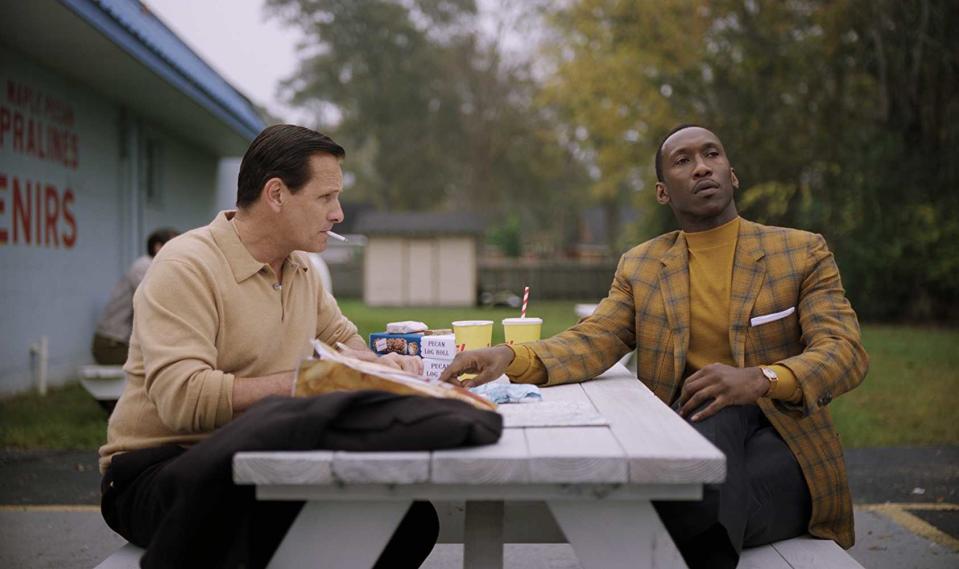Diversity in Hollywood 2019: Crossroads at the Oscars

For people unconnected to the film industry, inclusion issues can sometimes seem like a lot of Los Angeles-based inside baseball. But on Sunday, the whole world will witness Hollywood’s growing pains on live TV. The Academy Awards have a long, well-documented history of keeping marginalized groups out of the running for most awards, even when their work is popular and acclaimed. (Some of the more famous snubs: Spike Lee’s Do the Right Thing for Best Picture, Barbra Streisand’s direction on Prince of Tides, the film Straight Outta Compton, and the documentary Paris Is Burning.) Wins for minority groups are also rare in most categories; for example, over the course of 90 years, only 36 Oscars have been awarded to black people. Only one female-led film has ever won Best Director or Best Picture (Kathryn Bigelow’s The Hurt Locker), and zero African Americans have won Best Director, despite two films helmed by black directors (12 Years a Slave and Moonlight) winning Best Picture.
After the #OscarsSoWhite boycotts in 2015 and 2016 (a reaction to two years in a row with zero non-white acting nominees), the Academy of Motion Picture Arts and Sciences started to take a good, hard look at itself… and saw that its voting members were 94 percent white, 77 percent male, and had a median age of 63. For the first time, the Academy made a strong push to diversify its new membership to better reflect the moviegoing audience, along with adding new board members and disqualifying some older, effectively retired voters. Perhaps as a result, 2017 and 2018 saw a shift towards inclusivity, including the second-ever Best Picture win for a black director (Barry Jenkins’s Moonlight), the first woman ever nominated for Best Cinematography (Rachel Morrison for Mudbound), and the first nomination for an openly transgender director (Yance Ford, director of the documentary Strong Island).

Seeing as 2018 was a historic year for diversity both onscreen and behind the camera, the 2019 Oscar nominations were expected to be even more progressive than previous years. And in some ways, despite blind spots like the absence of female directors, that prediction came true. For example: of the eight Best Picture nominees, three (A Star Is Born, Roma, and The Favourite) have female-led casts, and five (BlacKkKlansman, Black Panther, Bohemian Rhapsody, Green Book and Roma) feature a person of color in a leading role. Honorary Oscar winner Spike Lee (BlacKkKlansman) received his first Best Director nomination. Yalitza Aparicio (Roma) became the first indigenous woman ever nominated for Best Actress. Thanks to Black Panther, the Best Production Design and Best Costume Design categories each have a black woman nominated for the first time.
And yet two of this year’s most-nominated films have sparked controversy, exposing a rift in Academy members’ ideas of what constitutes progress. The first is Green Book, Peter Farrelly’s based-on-a-true-story comedy about worldly African-American concert pianist Don Shirley (Mahershala Ali) and his Italian-American bodyguard/chauffeur Tony Vallelonga (Viggo Mortensen) finding common ground during a tour of the segregated Deep South in 1962. Frequently described as a “reverse Driving Miss Daisy” (after the 1990 Best Picture winner), the film shares a lot of characteristics with older Hollywood films about racism in America. For one, the main character is white. It’s Vallelonga whom the audience is expected to identify with, and whose emotional journey takes precedence over Shirley’s. (One could argue that these are both lead characters, but it’s telling that the producers put Mortensen up for a Best Actor nomination and Ali for Best Supporting Actor.) Second, much of Green Book’s humor traffics in tired racial stereotypes — for example, the running joke that Shirley has never eaten fried chicken. Third, the film has been accused of downplaying the real threats to black men in the Jim Crow South, like lynching, in favor of relatively minor scenarios like Shirley being refused dinner at a restaurant. Finally, Green Book has been criticized of “whitewashing racism,” delivering the message that if we all just tried harder to get along, the many historical and institutional barriers facing black Americans would magically vanish.

There’s little doubt that if a film like Green Book had been up for Best Picture between 1967 (when In the Heat of the Night won) and 2005 (when Crash won), it could have competed without much controversy. But in 2018, audiences had the chance to see a groundbreaking crop of excellent films about racism by African-American directors. BlacKkKlansman, Sorry to Bother You, The Hate U Give, Blindspotting and even Black Panther explored the issue from a black perspective, showing that racism is complex, ingrained in our society, and not easily solved by well-meaning white people. Green Book has many fans and defenders, including Quincy Jones and Harry Belafonte (the latter of whom also has a powerful supporting role in BlacKkKlansman). But while fellow Best Picture nominees BlacKkKlansman and Black Panther feel contemporary and bracingly honest, Green Book seems like a throwback.
The second controversial film is Bohemian Rhapsody, the Queen biopic beloved by audiences for bringing singer Freddie Mercury back to life, and reviled by critics for its cliched script and shoddy direction. The filmmakers did make the progressive decision to cast an actor of color, Rami Malek, as Mercury, whose parents were Indian. (If this doesn’t seem progressive, note that white actors are frequently hired to play real-life people of color, in films as recent as Argo, A Beautiful Mind and The Social Network.) Backlash against the film centers around mainly around two issues. The first is a charge of homophobia. Critics say that Bohemian Rhapsody downplays Mercury’s homosexuality, largely by centering his love life around his youthful fiancée and lifelong friend Mary (Lucy Boynton), instead of delving into his relationships with men. Many also feel that the film does a disservice to the real musician, and millions of other victims, by tiptoeing around his suffering and death from AIDS.

The other wave of backlash involves the film’s original director, Bryan Singer, who was fired early in production after he failed to show up to work for several days in a row. The openly gay X-Men director has long been the subject of rumors and lawsuits alleging that he ran a casting couch and sexually abused underage boys. These charges gained credibility with a meticulously reported story published in The Atlantic in February, in which multiple alleged victims came forward and more than 50 sources offered credence to their stories. As feminist-driven movements like Time’s Up and #MeToo are working hard to expose and end such abuses of power in Hollywood (Harvey Weinstein being the most prominent example), all the positive attention lavished on Bohemian Rhapsody seems misplaced. While Singer’s name was technically taken off the film, he has profited from it to the tune of $40 million and has been happily taking credit for its awards-season success. In the face of controversy, the film’s stars and producers have refused to reckon with the allegations against Singer, instead trying to distance themselves from him by saying they had absolutely no idea about any of it.
Do Green Book’s willful naïveté and Singer’s abuse charges matter when it comes to the Oscar race? For the old Hollywood establishment, they might not. But for new Academy voters, and anyone trying to widen the film industry’s playing field, it could matter a great deal. At the end of the night, how Black Panther and BlacKkKlansman stack up against Green Book and Bohemian Rhapsody may be seen as an indicator of whether the industry is moving forward, or dragging its feet.

That said, here’s one positive sign of how far the Academy has come: This year, they reached out to #OscarsSoWhite originator and activist April Reign and invited her to the ceremony. She accepted. “The work continues,” she told The Hollywood Reporter, “but I am thrilled to be able to celebrate the incremental progress that has been made, even if only for a night.”
Yahoo Entertainment’s Diversity in Hollywood 2019 Report
Part 1: Where we are, how far we have to go and how we can get there
Part 2: By the numbers
Part 3: Why it’s time for change and 5 possible solutions
Part 4: Crossroads at the Oscars
Part 5: The future is now



